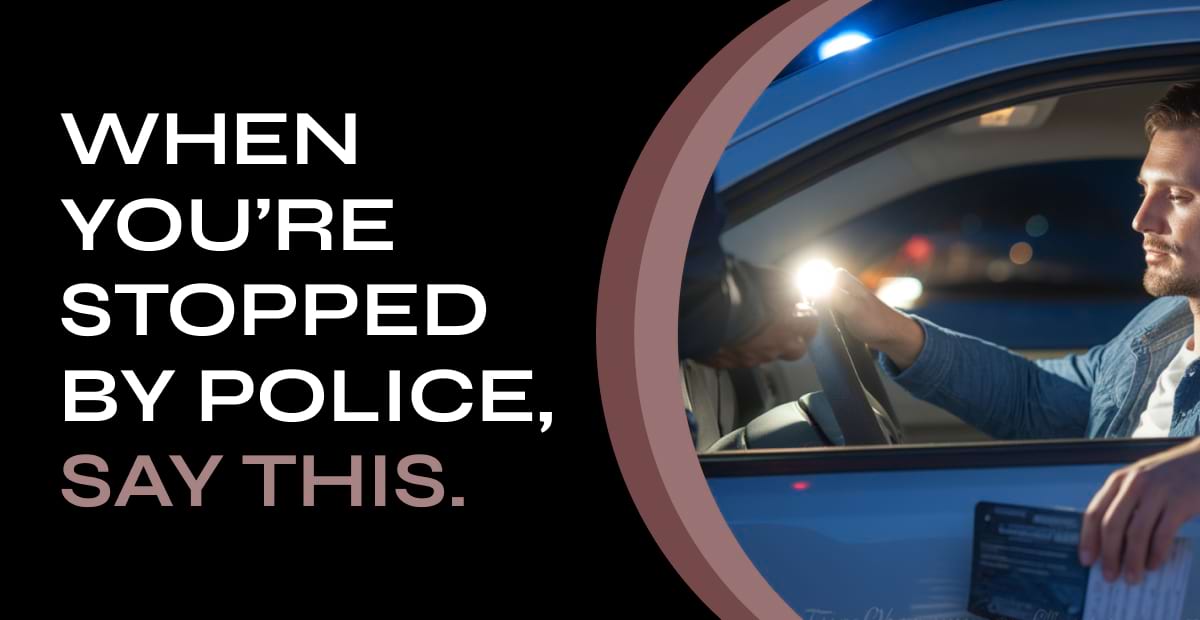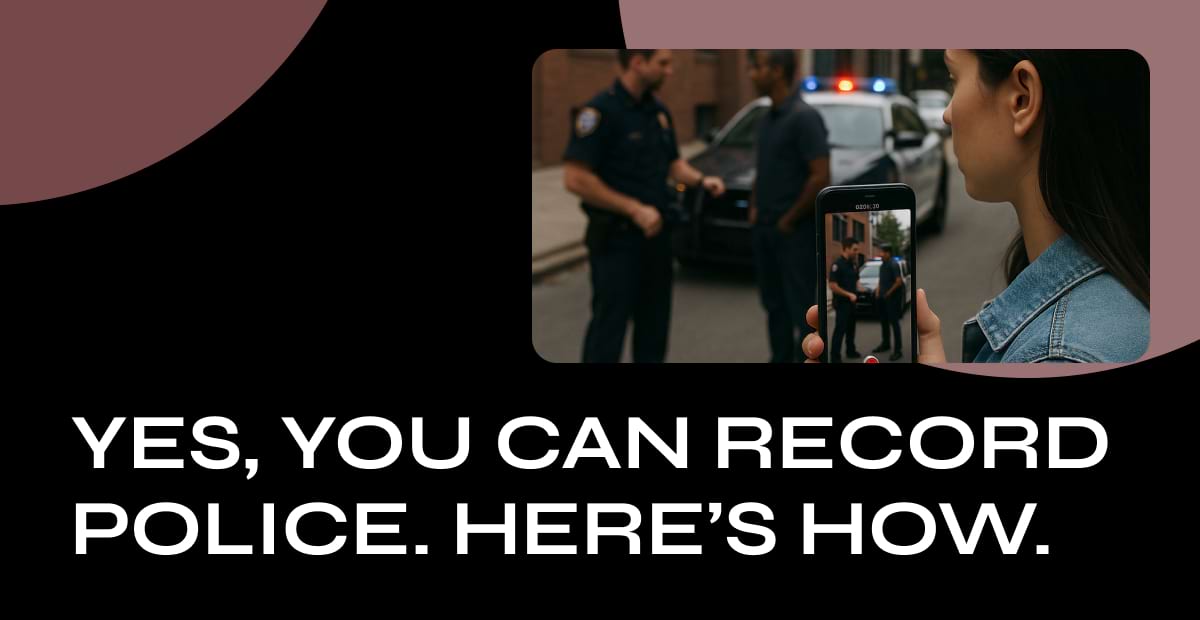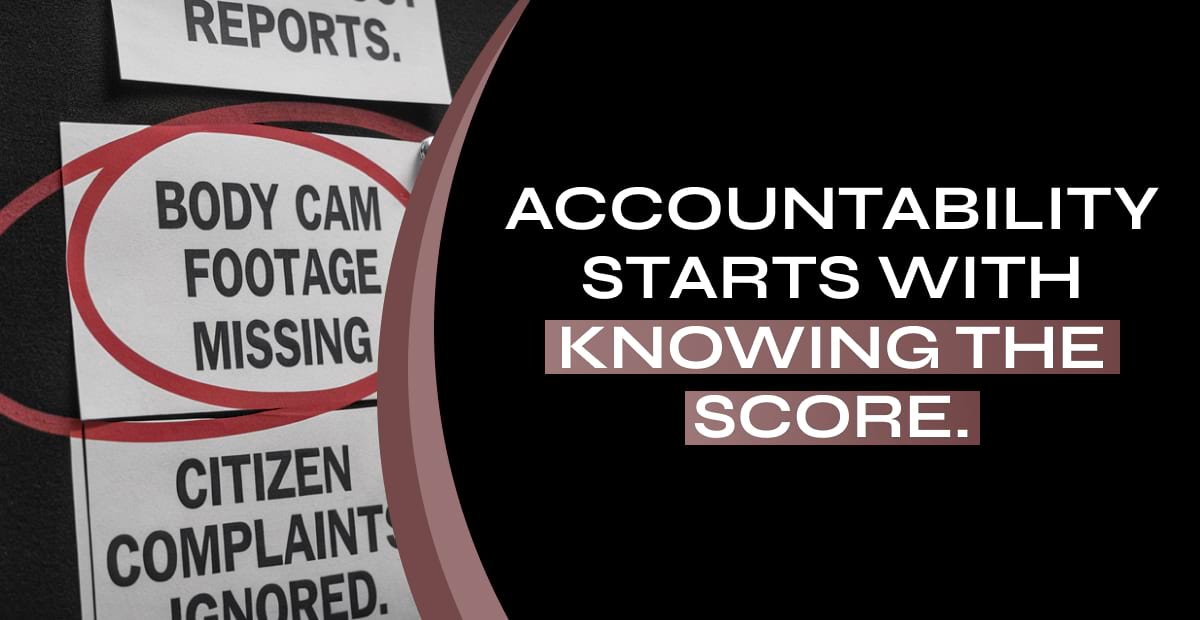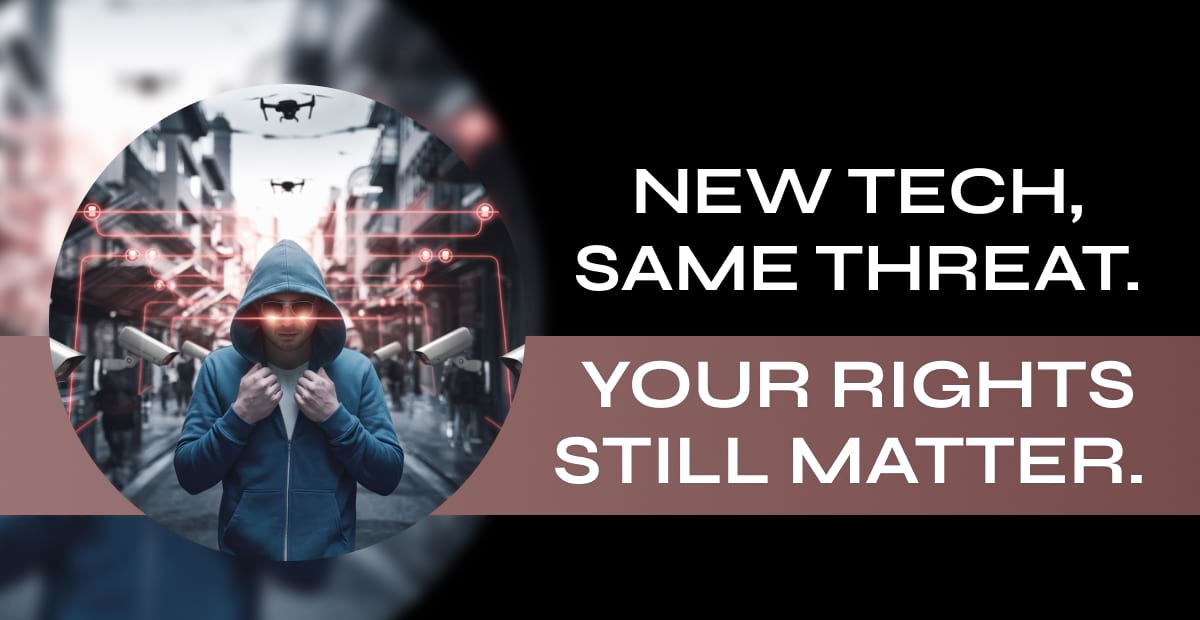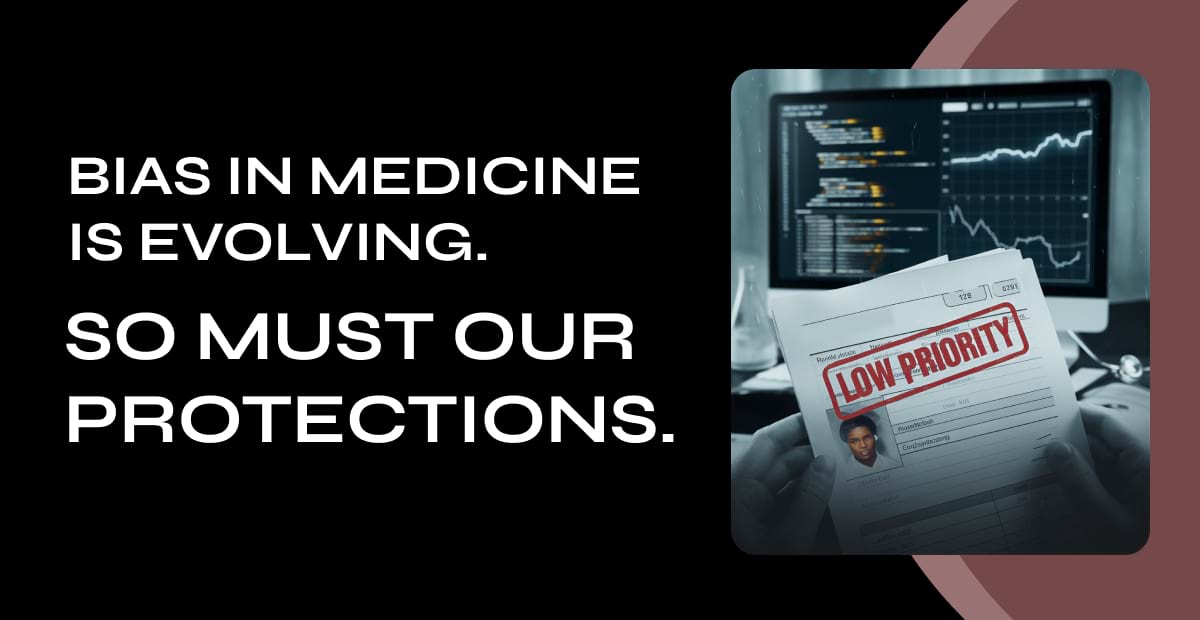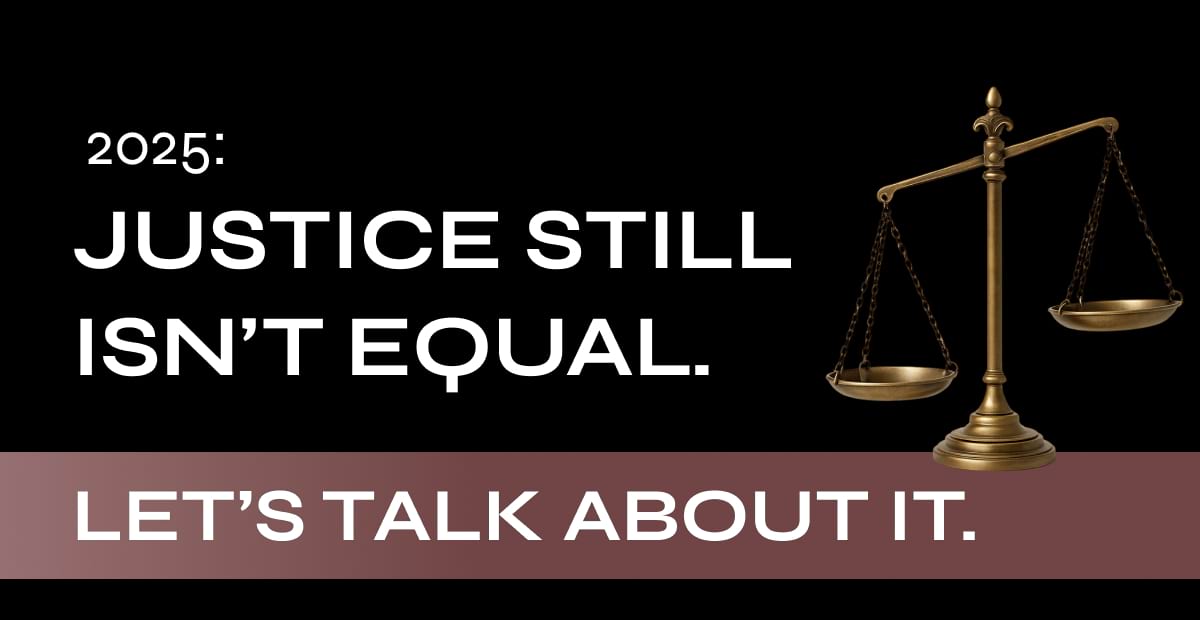By Lustitia Aequalis
When police stop you on the street, at your car, or outside your home, it’s easy to freeze. That’s not just nerves. It’s how pressure works. And officers are trained to use it.
But pressure doesn’t have to strip away your rights. In those moments, your voice can still create a legal boundary. Just three sentences, spoken calmly, can make the difference between walking away and being pulled deeper into the system.
“Am I being detained, or am I free to go?”
“I do not consent to any searches.”
“I want to speak with a lawyer.”
These are not slogans. They are functional tools, recognized by law and sharpened by decades of civil rights defense. Learn them. Practice them. And when the time comes, use them with clarity.
🚔 First: “Am I being detained, or am I free to go?”
This question forces clarity. If you’re not being detained, you have the legal right to walk away. If you are, officers must tell you why.
According to the ACLU of Northern California, California law requires police to state the reason for a stop before questioning you. They must also document the reason in a citation or report. If they cannot give a clear answer, the legality of the stop is questionable.
Use this question to take control early. It sets a boundary and signals that you know the law.
🔍 Second: “I do not consent to any searches.”
Even if you have nothing to hide, never give permission to be searched. Officers may search you anyway, but if you clearly say you do not consent, you protect your ability to challenge that search later in court.
Anything found during a consensual search can be used against you, even if the search wasn’t initially legal. Saying you do not agree to a search creates a record of non-consent. This matters, especially if the case ever reaches a courtroom.
The ACLU guide advises saying this every time an officer tries to search your body, car, bag, or phone. Do not resist physically. Simply repeat the sentence.
🧠 Third: “I want to speak with a lawyer.”
This is your legal shield. Once you say this, officers are required to stop questioning you. If they continue, anything you say may be thrown out in court.
Invoke this right as soon as you are arrested or believe you may be.
Don’t wait for the perfect moment. You do not need to explain why. You do not need to answer anything after. Just say it, and then stay silent.
The ACLU also recommends saying “I want to remain silent” alongside this statement. Together, these two phrases stop the clock on voluntary questioning.
👁️ Legal Rights in Real Time
Police and federal agents often act before they explain. But that does not mean you have no say. Whether the badge says LAPD or ICE, you still have rights. And that includes the right to record.
In Southern California, community members have used smartphones to film ICE detentions at parking lots, car washes, and grocery stores. These videos have become vital evidence, especially in cases where people are wrongly targeted or where force is used.
You are legally allowed to film officers in public spaces, as long as you are not interfering. You can record badge numbers, license plates, and the surrounding area. You can ask detainees for their full name, birth date, and a contact person. You can tell them they have the right to remain silent. And you can ask officers for their name or to show a warrant.
They may not answer. But you have the right to ask.
According to ACLU counsel Peter Eliasberg, if an officer tells you to stop recording, you can respond: “I am exercising my right to document this interaction.” If they tell you to move, comply—but record yourself doing it. That video shows you followed instructions and protected your safety.
🔒 Protect Yourself, Not Just in the Moment
If you record, lock your phone with a passcode. Police may try to take your phone or force you to unlock it. Under the Fifth Amendment, passcodes are protected. Fingerprint or facial ID are not.
Back up footage immediately, and report abuse to legal organizations like the ACLU. But don’t rely on post-event help alone. Resources are limited. What protects you most is your preparedness.
When you know what to say, you reduce confusion. You create a record. And most importantly, you protect yourself and the people around you.
🔒 Record with Purpose. And Protection.
Knowing your rights is step one. Recording them is step two. But in the middle of a high-pressure moment, pulling out your phone isn’t always enough. That’s why Lustitia Aequalis created the Witness App.
With one tap, the Witness App:
Starts recording video and audio
Sends a real-time alert and location to your emergency contact
Uploads footage securely to the cloud so it can’t be deleted, lost, or seized
Whether you’re being stopped, witnessing abuse, or trying to protect someone else, Witness puts legal power in your hands, backed by evidence.
 (2).jpg)


_(1).jpg)

